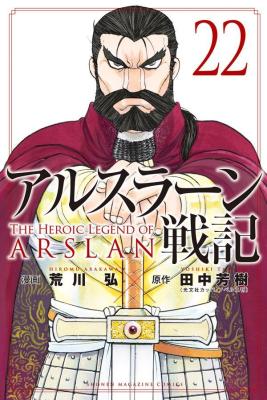It is rather silly to attempt to review an epic at its beginning chapters, but I will try nonetheless.
The story is handled intelligently- under the straightforward nature of Arslan's quest, there are hints of a deeper story that is slowly being unravelled through the political machinations and intrigues of the various other characters in the cast. The balance between humor and drama is also pleasant, and it never becomes tiring despite the heaviness of the ideas it tries to impart.
Events happen at a nice pace, neither too rushed or too drawn out. You are given time to process the relationships between characters, and how they fit into the bigger picture. You are given a spectrum of characters who represent different ideas on morality and ethics, and how they play off each other.
As this is an adaptation of a long-running novel, there is only so much Arakawa-sensei can modify in her version of Arslan Senki. But I trust in her ability to create multi-faceted and relatable characters, and it should be no different here in regards to Prince Arslan.
For those who complain about the weakness they perceive, what sort of hero's journey would it be it if the hero begins it already complete and fully-formed in character? The beauty of an epic is its ability to show the different paths, and different journeys, of different sorts of heroes (or villains)- how they develop or intertwine, or how they clash and destroy.
Arslan's character functions as a foil to his Father, his gentle determination a contrast with the stubborn bloodthirst that King Andragoras displays. Those who think him inadequate as a hero because of the lack of hot-blooded machismo he displays has lost the point of the story- for the hero's journey is about growth, not stagnation.
As for those who nitpick at historical "inaccuracies" or middling details- this is a story based off another story. Amir Arsalan was written as a Persian legend regarding an European invasion of a Persian city- and the rise of a forgotten Prince to reclaim his homeland. The point in stories isn't so much the accuracy of their depiction of class divisions, metal smithing tech or even their geographical locations but the values and ideas which they impart through the progression of the narrative and the development of the characters.






